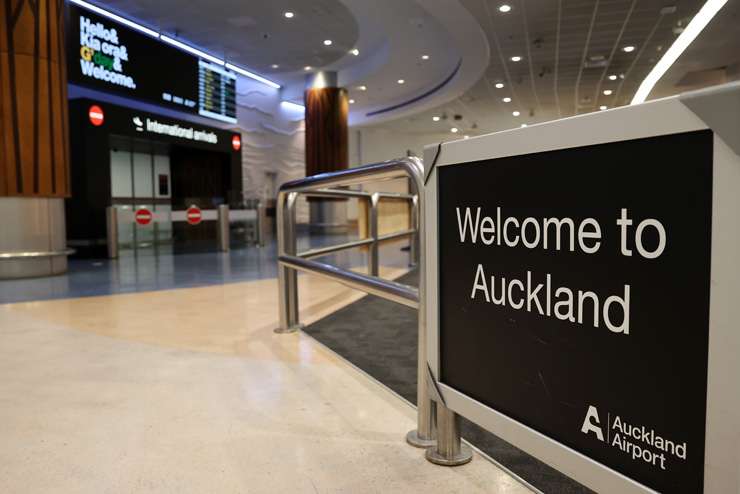In Japan, there is such a glut of abandoned houses in rural areas they can’t give them away, even at dirt cheap prices.
The problem is linked to Japan’s declining birth rate and rapidly ageing population.
New Zealand also has an ageing population and declining birth rate but before millennials get hopeful of a free or cheap house when all the boomers die out, economists say we are many moons away from the scenario that’s current playing out in Japan.
Japan’s abandoned houses are known as akiya and there are millions of them, mainly in rural areas with many fairly run down.
Start your property search
In June, the Australian Financial Review reported abandoned homes were being snapped up for as little as A$10,000.
The report pointed out that rural properties in Japan are almost worthless and start depreciating the second they are bought - a hard concept for a country like Australia to fathom, because most real estate in remote Australia still has value.
“Once their elderly occupants die, properties are often abandoned because their children, who have usually moved to a big city, have no personal interest or financial incentive to maintain the house.”
Read more:
- Mansion bought sight unseen at court-ordered auction
- 'Dream bach' in hidden beach town could smash price record
- The Auckland suburbs making a comeback – why buyers are targeting these locations
The country’s birth rate is reported to have declined to a record low of 1.26 births per woman with the population shrinking and ageing.
Japan’s birth rate is below the 2.06 to 2.07 considered to be needed to maintain a population – and New Zealand’s is below that as well.
Stats NZ reports New Zealand’s fertility rate fell to 1.65 births per woman at the end of March compared to 1.69 for 12 months before, and the number of people aged 65 or older is increasing, as is the 85-plus age group.
KiwiBank chief economist Jarrod Kerr, however, says Japan is well ahead of New Zealand when it comes to an ageing population.
“I think they've got the oldest country in the world when it comes to people over 65 and as a proportion I think it's like 40, 50% of their population is over 65, which is huge.”
The difference with New Zealand is that even if the birth rate is falling, the population is not going to fall in the same way as New Zealand imports people, many of them aged between 20 and 40, which maintains demand in the housing market.
“I call it a fountain of youth. We bring in these migrants and they're plugging that hole.”
New Zealand also has a “massive” shortage of housing, unlike in Japan. “It's just not the same as Japan. Even if we're talking about 2050 our population is still growing.”
Also playing out in the background is climate change and its impact on the housing stock.

Immigration levels have kept New Zealand’s population relatively young. Photo / Getty Images

KiwiBank chief economist Jarrod Kerr says New Zealand has a “massive” shortage of housing. Photo / Fiona Goodall
“There are homes we've established, after the flooding and the cyclone this year, which are clearly at risk.”
Insurance company IAG said earlier this year 20,000 homes are in high-risk areas, so that’s 20,000 homes that will potentially be gone from the housing pool so even more will have to be built, Kerr says.
Statistics also show New Zealand has seen a lift in the number of people inhabiting each house we have, which he says is a clear sign of a housing shortage.
“It would be fantastic if we could boost supply even more so that comes back down and there are enough homes for the people that we have but we're miles away from that at the moment.”
CoreLogic’s chief economist Kelvin Davidson says without immigration it could be conceivable there would an oversupply of housing once boomers (those born between 1946 and 1964) die out, but he, too, says New Zealand has big inflows of people and they tend to be younger so the country is always growing its population.
“We're still a long, long way away from any sort of situation that might be happening in Japan.”
New Zealand has a homeless problem, and people are living in bigger households than they used to, meaning there are not as many houses as society would like.
But people generally are living somewhere, and there are empty houses such as holiday homes, which means the actual shortage is hard to pinpoint.
What New Zealand does face is a shortage of houses at a price people can afford, be that to buy or to rent, and that is something the country has to work through before it worries about having too many homes, Davidson says.

QV operations manager James Wilson: “I don't think it will ever be a situation that all of the boomers are gone and suddenly the housing crisis doesn't exist.” Photo / Fiona Goodall
He points out baby boomers will be around for some time and will be occupying houses.
“If you're born in 1945, you're pushing 80 but life expectancy is 85 or high 80s. The boomers probably haven't really even started dying yet really. They’ve still got to live somewhere for another 25 to 30 years.”
There could be a mismatch of housing type coming, however, Davidson says. Baby boomers may have four or five-bedroom houses and when it comes to selling them in 10 or 20 years they may find the next buyers don’t want such large houses.
People may have delayed having a family, or may have decided to only have one or two children and only want a two or three bedroom townhouse.
There are big questions to be figured out when it comes to the housing stock, Davidson says, but while the Japanese experience is an interesting one New Zealand does not have to worry any time soon.
James Wilson, operations manager with Quotable Value, says there are already empty properties in New Zealand.
There are families who are holding on to the property while they decide what to do, he says.
“It's perhaps more common than people think. The scenario usually is mum and dad are getting older and maybe moving to a retirement home or maybe one or both of them have passed away and the kids might not have the money themselves to do the property up and so they just sit there and hold it.
“It might be tenanted for a period of time or often it will just sit there.”
But even if those homes were all tidied up and put on the market, there are not nearly enough of them to solve New Zealand’s housing problems.
Wilson says net migration means the population increases faster than the death rate: “I don't think it will ever be a situation that all of the boomers are gone and suddenly the housing crisis doesn't exist.”
However, regional New Zealand could need to plan for scenarios where the population base is dwindling because younger people have relocated to urban centres while older people have downsized and relocated to the regions, graying some small towns scattered around New Zealand.
- Click here to properties for sale









































































